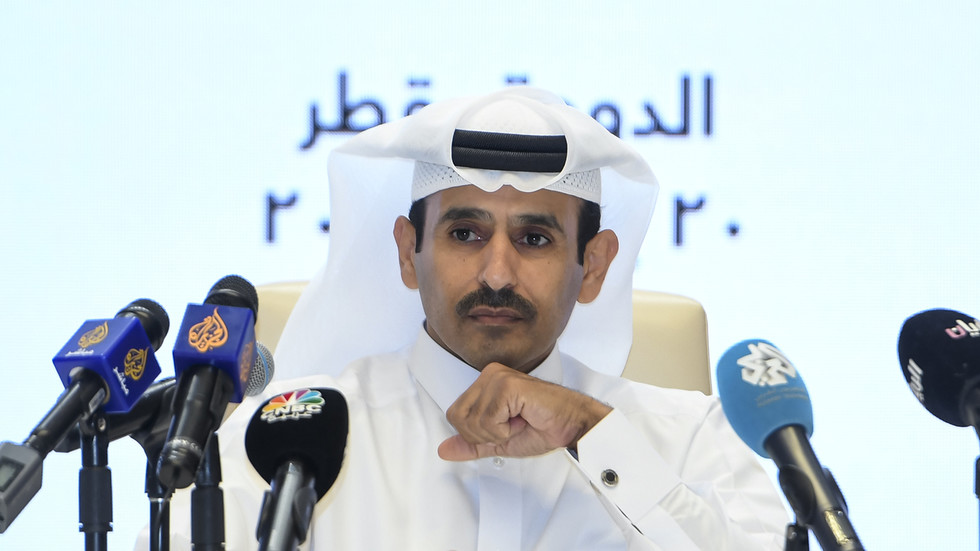Qatar’s energy minister, Saad al-Kaabi, has issued a stark warning regarding the future of gas exports to the European Union (EU). The Gulf nation, which has become a crucial supplier of liquefied natural gas (LNG) for the EU amid the bloc’s efforts to reduce reliance on Russian gas following the onset of the Ukraine conflict in 2022, will stop shipments if the EU enforces new carbon-emission fines on the state. Al-Kaabi’s declaration comes in light of the EU’s Corporate Sustainability Due Diligence Directive, which outlines stringent penalties for non-compliance. QatarEnergy, the state-owned enterprise, holds long-term LNG contracts with several EU nations, including Germany, France, Italy, and the Netherlands, underscoring the significant role Qatar plays in the region’s energy supply.
The EU’s new carbon-emission legislation, endorsed in May 2023, is a pivotal component of the bloc’s strategy to achieve net-zero emissions by 2050. It allows for fines equivalent to 5% of a non-compliant company’s global annual revenues. Al-Kaabi warned that such penalties could severely jeopardize the finances of QatarEnergy, which in turn would adversely affect the nation’s economy and the livelihood of its citizens. He articulated a firm stance, asserting that if Qatar were to experience a loss of 5% of its revenue due to compliance with EU regulations, it would not continue to send gas to Europe. This highlights the precarious balance between energy exports and regulatory compliance the Gulf nation faces.
Additionally, al-Kaabi emphasized the logistical challenges that prevent an energy producer like QatarEnergy from meeting the EU’s net-zero emission targets as specified in the directive. He underscored that the extensive nature of hydrocarbon production in Qatar fundamentally conflicts with the EU’s ambitious climate goals. In light of potential penalties, he indicated that while QatarEnergy would honor its existing LNG contracts, it would seek to explore legal avenues to contest any imposed fines rather than accept them passively. His unwavering commitment to protecting Qatar’s economic interests reflects the broader tensions inherent in energy politics, particularly in the arena of climate commitments and fossil fuel dependence.
The geopolitical landscape regarding energy supply has shifted dramatically since the escalation of the conflict in Ukraine. The EU, in a bid to substitute Russian natural gas, has turned to more costly LNG imports from the Middle East and the United States. While the bloc continues to receive some pipeline gas from Russia through Ukraine, the future of this arrangement remains in doubt, as reports indicate that Ukraine officials do not intend to extend their gas transit deal with Russia when it expires at the end of December 2023. This move to diversify sources away from Russian gas has further entrenched Qatar’s role as a key energy provider for Europe, complicating relationships and expectations moving forward.
The consequences of enforcing strict emissions penalties have broader implications for international energy markets and may drive wedges into established trading relationships. Qatar stands at a crossroads, where its vital interests in maintaining energy exports to Europe may clash with the EU’s environmental ambitions. As the bloc grapples with the pressures of meeting climate targets while ensuring energy security amidst global market fluctuations, Qatar must navigate potential fallout from these regulatory changes, which could include reshaping its energy export strategies or even reallocating supplies in favor of alternative markets if necessary.
In conclusion, the interplay between Qatar’s energy exports to the EU and the proposed carbon-emission regulations presents a complex challenge that encapsulates both energy dependency and environmental policy. The outcomes of this situation may redefine Qatari-EU relations going forward, particularly as both parties must reconcile their respective economic and environmental priorities. As they face looming deadlines and substantial penalties, the stakes are high for both the EU’s aspirations for a sustainable energy future and Qatar’s dependence on natural gas revenues. This ongoing discourse will likely set the tone for future energy negotiations and the broader implications for global climate initiatives.

